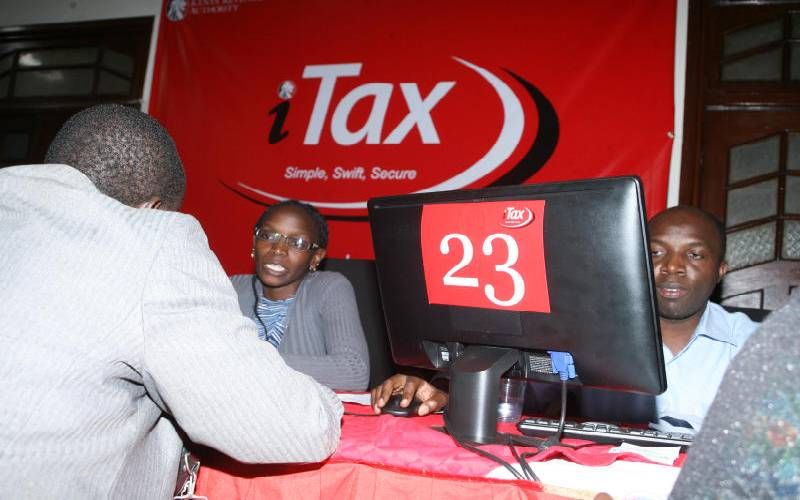Your Read is on the Way
Every Story Matters
Every Story Matters
The Hydropower Boom in Africa: A Green Energy Revolution Africa is tapping into its immense hydropower potential, ushering in an era of renewable energy. With monumental projects like Ethiopia’s Grand Ethiopian Renaissance Dam (GERD) and the Inga Dams in the Democratic Republic of Congo, the continent is gearing up to address its energy demands sustainably while driving economic growth.
Northern Kenya is a region rich in resources, cultural diversity, and strategic trade potential, yet it remains underutilized in the national development agenda.

Can AI Help cure HIV AIDS in 2025

Why Ruiru is Almost Dominating Thika in 2025

Mathare Exposed! Discover Mathare-Nairobi through an immersive ground and aerial Tour- HD

Bullet Bras Evolution || Where did Bullet Bras go to?
The tax filing season in Kenya is a crucial annual responsibility for individuals and institutions. For the 2025 cycle, the Kenya Revenue Authority (KRA) has maintained the long-standing deadline of June 30. This applies to all persons holding a valid Personal Identification Number (PIN), including employees, business owners, landlords, and even those without income—who are expected to file Nil Returns.
Filing tax returns in a timely manner is not just a legal obligation; it also helps avoid fines, penalties, and unnecessary interest charges. The penalties for non-compliance can be steep, and KRA has automated its compliance systems to track and enforce these obligations strictly.
All individual and corporate taxpayers must submit their 2024 income tax returns on or before June 30, 2025. This includes:
-Employees filing under the Income Tax – Resident Individual category.
-Business owners and consultants using the Self-Assessment system.
-Individuals with no income filing a Nil Return.
KRA has made online filing mandatory through the iTax portal. Failure to file by the deadline will automatically trigger penalties, regardless of whether one has tax payable or not.
-Salaried employees (including those whose taxes are deducted via PAYE).
-Self-employed individuals in business, trade, or consultancy.
-Landlords earning rental income.
-Persons earning income from outside Kenya.
-Students or unemployed individuals holding a KRA PIN (must file Nil Returns).
It is important to note that holding a KRA PIN, regardless of employment status, comes with the responsibility to file an annual return.
The penalties for missing the June 30 deadline are applied automatically by the iTax system. They include:

-For Individuals: A fixed penalty of Ksh 2,000 or 5% of the tax due—whichever is higher.
-For Companies and Partnerships: A minimum of Ksh 20,000 or 5% of the tax liability—whichever is greater.
These penalties are charged once the deadline lapses and will appear under the taxpayer’s ledger as an outstanding liability until paid.
In cases where tax is filed but not paid on time:
-A 5% penalty is applied on the unpaid amount.
-Additionally, interest accrues at 1% per month (or part thereof) until the full tax is paid.
This interest is compounding, and the longer the delay, the more expensive it becomes to clear the debt.
Beyond the annual returns, some taxpayers have monthly and quarterly obligations:
-Employers must submit PAYE returns by the 9th of every month.
-Businesses under installment tax schedules must remit tax in specified portions across the financial year.
Non-compliance on these monthly submissions also attracts interest and penalties.
Taxpayers with outstanding penalties and interest accrued up to December 31, 2023, have a rare chance to regularize their affairs through a tax amnesty running until June 30, 2025. Those who clear the principal tax due within this window may have associated interest and penalties waived.
This amnesty provides a valuable relief window, particularly for individuals and SMEs who have struggled with historical tax burdens.
-Your KRA account will be flagged as non-compliant.
-You may be unable to apply for or renew key documents like tax compliance certificates, business permits, and government tenders.
-Enforcement measures, including debt recovery and account freezes, may be initiated by KRA.
-Repeated failure to file returns could result in legal action or audits.
Timely tax filing is a personal and corporate duty that cannot be ignored. With the deadline for 2024 income tax returns set at June 30, 2025, taxpayers are encouraged to file early, pay any due amounts promptly, and take advantage of the available amnesty where applicable. Non-compliance is not only financially costly but could disrupt essential personal and business processes tied to tax clearance.
0 comments